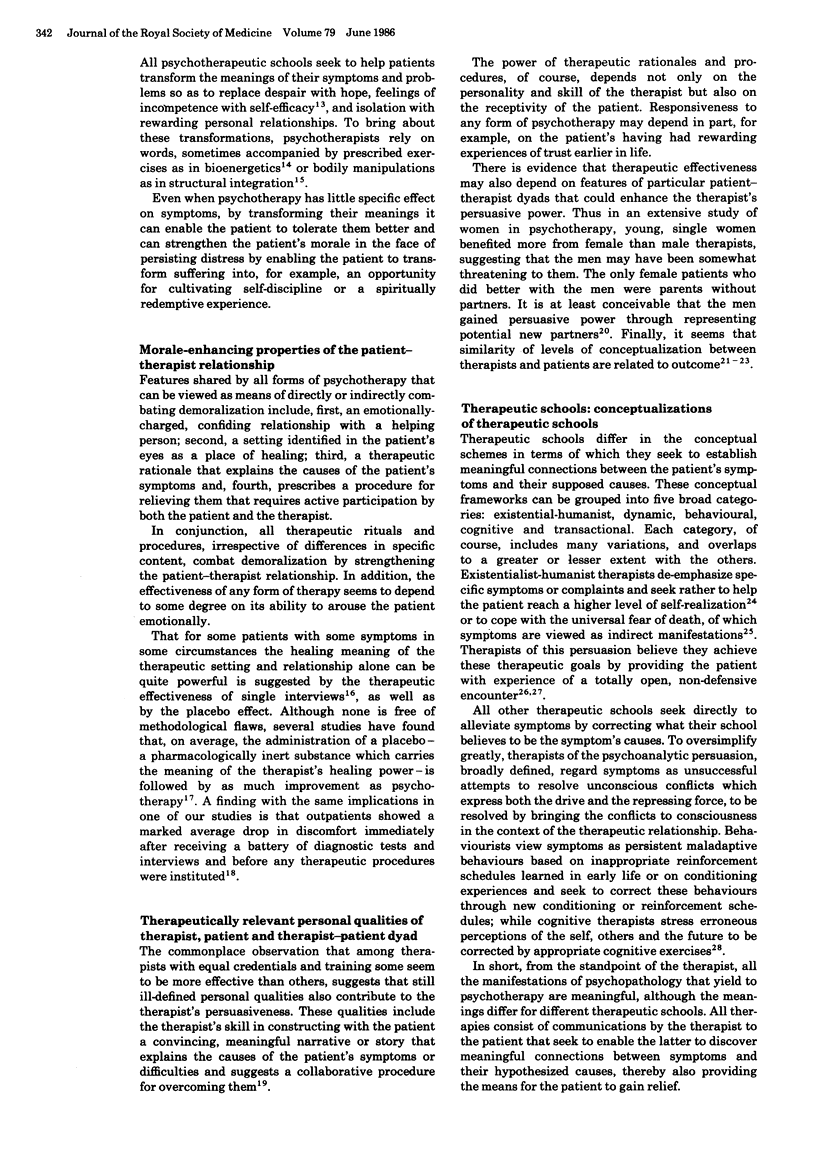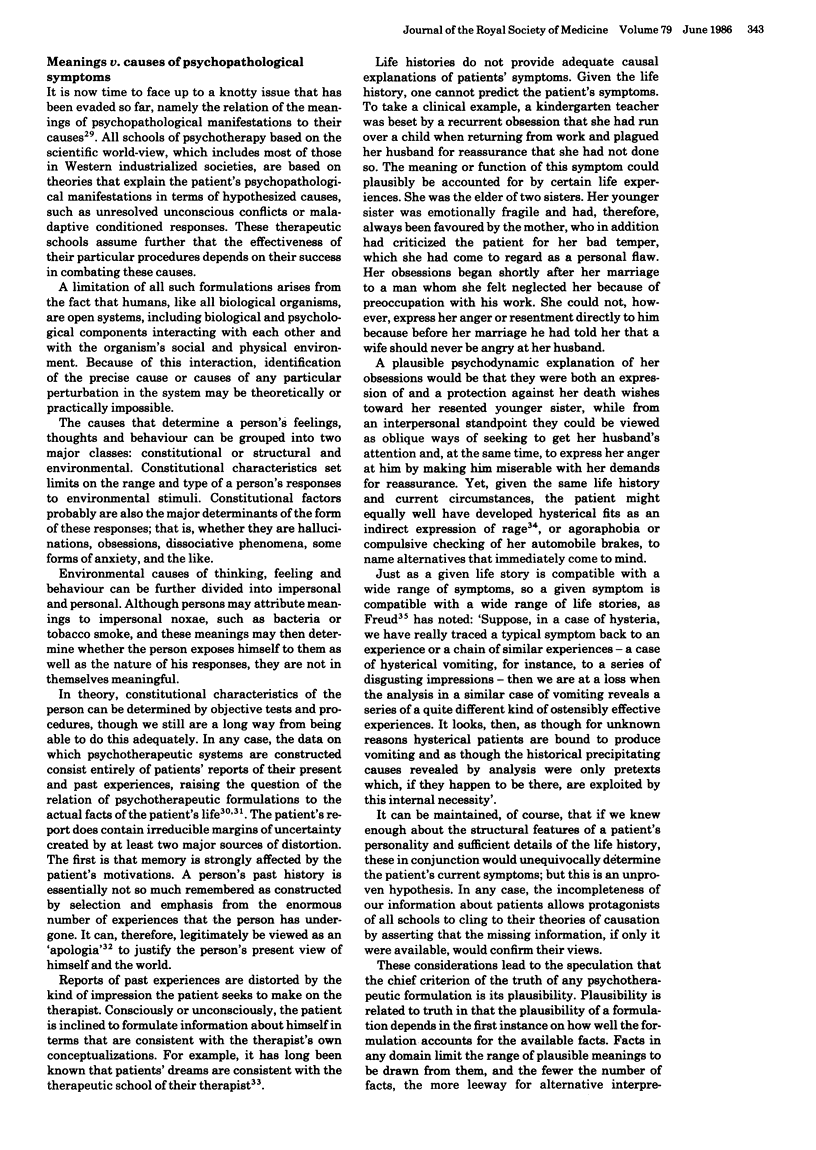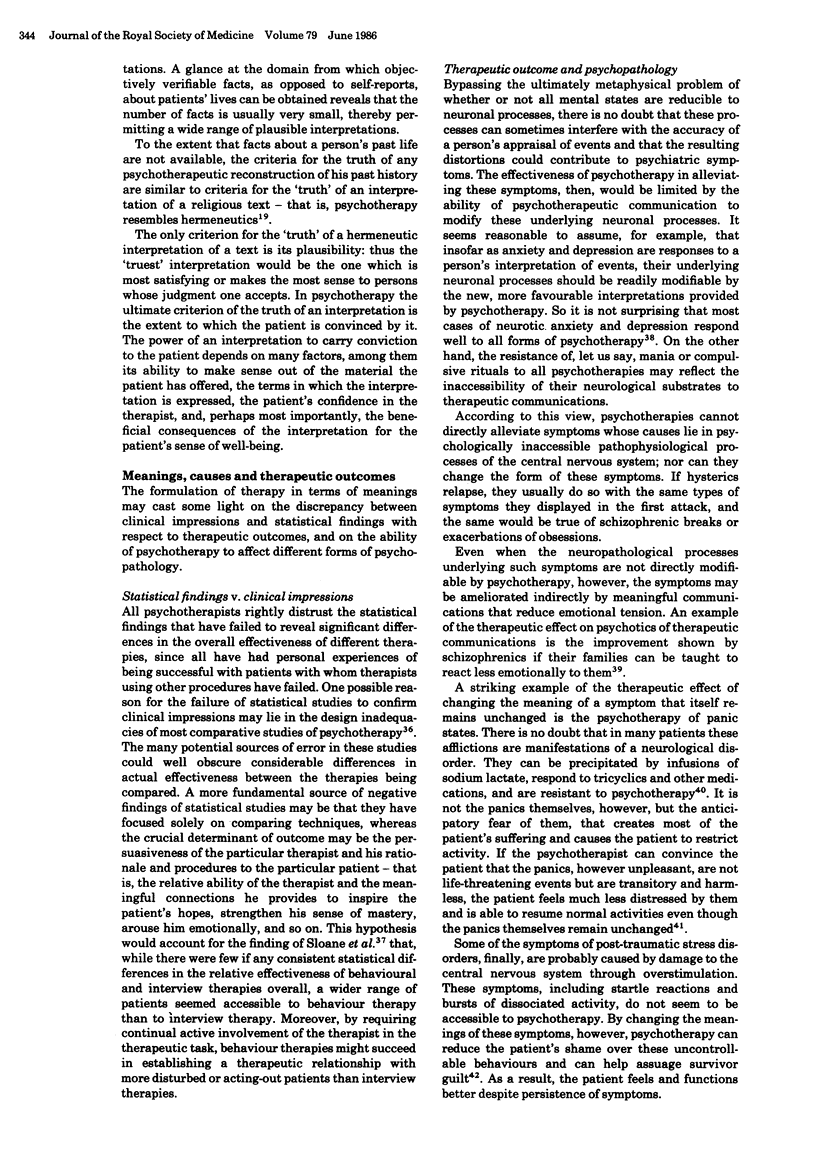Abstract
This paper presents the hypothesis that psychotherapy seeks to produce changes in attitudes and behaviour through transformation of meanings. Patients come to psychotherapy because they are demoralized by the menacing meanings of their symptoms. The psychotherapist collaborates with the patient in formulating a plausible story that makes the meanings of the symptoms more benign and provides procedures for combating them, thereby enabling the patient to regain his morale. As a result, he feels better and functions more effectively, leading to progressive improvement. Various implications and limitations of this hypothesis are explored.
Full text
PDF





Selected References
These references are in PubMed. This may not be the complete list of references from this article.
- Bandura A. Self-efficacy: toward a unifying theory of behavioral change. Psychol Rev. 1977 Mar;84(2):191–215. doi: 10.1037//0033-295x.84.2.191. [DOI] [PubMed] [Google Scholar]
- Best J. A. Tailoring smoking withdrawal procedures to personality and motivational differences. J Consult Clin Psychol. 1975 Feb;43(1):1–8. doi: 10.1037/h0076325. [DOI] [PubMed] [Google Scholar]
- Carr J. E. Differentiation similarity of patient and therapist and the outcome of psychotherapy. J Abnorm Psychol. 1970 Dec;76(3):361–369. doi: 10.1037/h0030271. [DOI] [PubMed] [Google Scholar]
- FRANK J. D., NASH E. H., STONE A. R., IMBER S. D. IMMEDIATE AND LONG-TERM SYMPTOMATIC COURSE OF PSYCHIATRIC OUTPATIENTS. Am J Psychiatry. 1963 Nov;120:429–439. doi: 10.1176/ajp.120.5.429. [DOI] [PubMed] [Google Scholar]
- GOFFMAN E. The moral career of the mental patient. Psychiatry. 1959 May;22(2):123–142. doi: 10.1080/00332747.1959.11023166. [DOI] [PubMed] [Google Scholar]
- Havens L. L. The existential use of the self. Am J Psychiatry. 1974 Jan;131(1):1–10. doi: 10.1176/ajp.131.1.1. [DOI] [PubMed] [Google Scholar]
- Jacobson G. The briefest psychiatric encounter. Acute effects of evaluation. Arch Gen Psychiatry. 1968 Jun;18(6):718–724. doi: 10.1001/archpsyc.1968.01740060078010. [DOI] [PubMed] [Google Scholar]
- Klein D. F., Zitrin C. M., Woerner M. G., Ross D. C. Treatment of phobias. II. Behavior therapy and supportive psychotherapy: are there any specific ingredients? Arch Gen Psychiatry. 1983 Feb;40(2):139–145. doi: 10.1001/archpsyc.1983.01790020033003. [DOI] [PubMed] [Google Scholar]
- Reus V. I., Weingartner H., Post R. M. Clinical implications of state-dependent learning. Am J Psychiatry. 1979 Jul;136(7):927–931. doi: 10.1176/ajp.136.7.927. [DOI] [PubMed] [Google Scholar]
- Vaughn C. E., Leff J. P. The influence of family and social factors on the course of psychiatric illness. A comparison of schizophrenic and depressed neurotic patients. Br J Psychiatry. 1976 Aug;129:125–137. doi: 10.1192/bjp.129.2.125. [DOI] [PubMed] [Google Scholar]
- WOLFF W. Fact and value in psychotherapy. Am J Psychother. 1954 Jul;8(3):466–486. doi: 10.1176/appi.psychotherapy.1954.8.3.466. [DOI] [PubMed] [Google Scholar]



